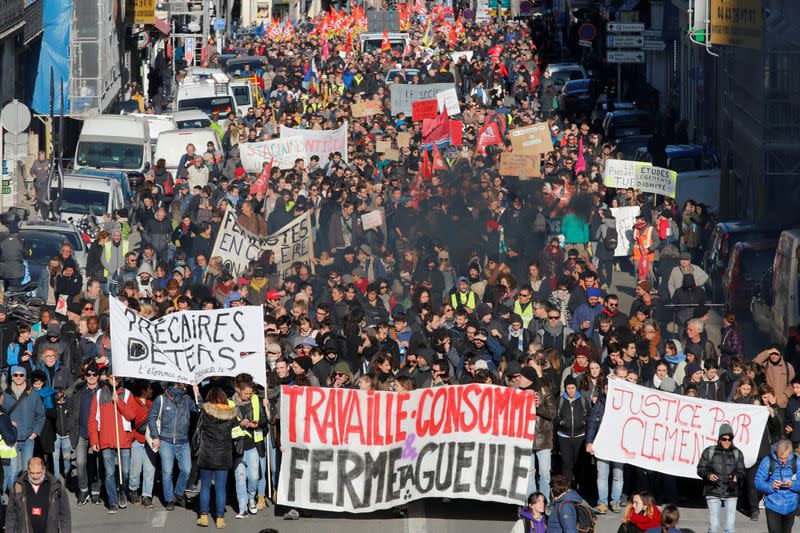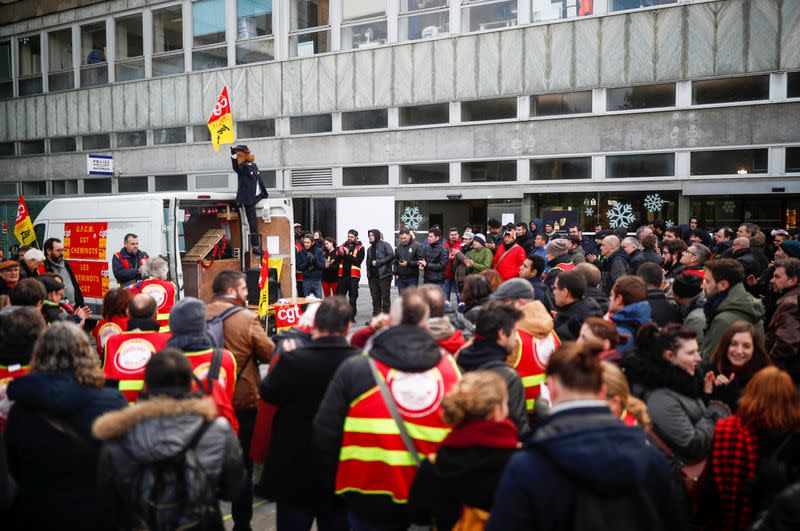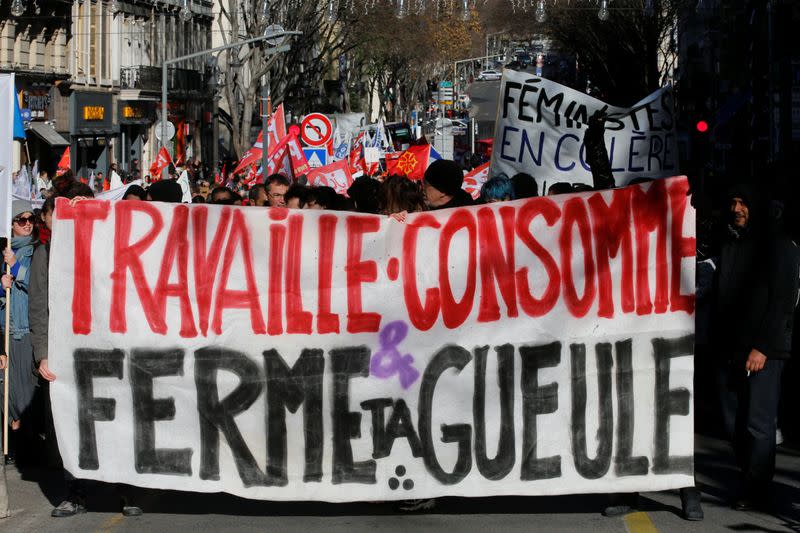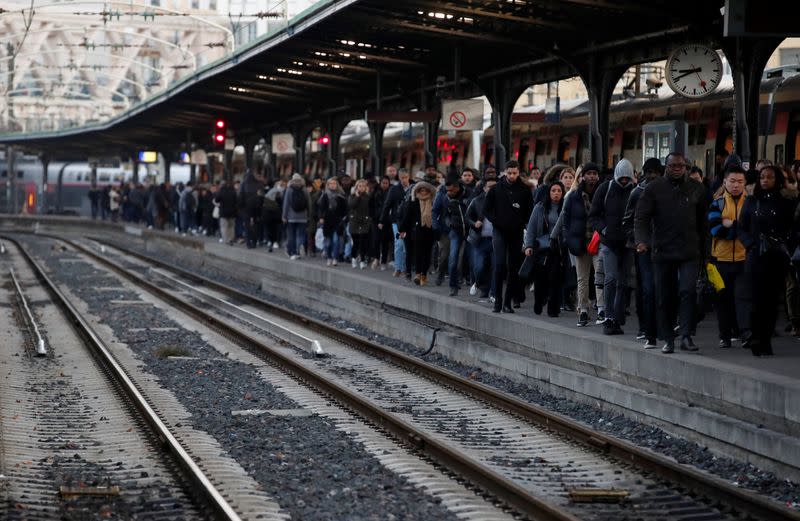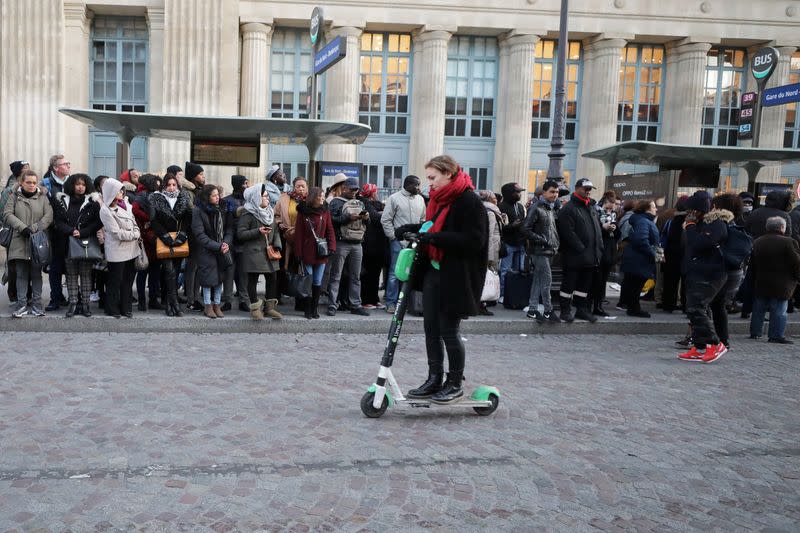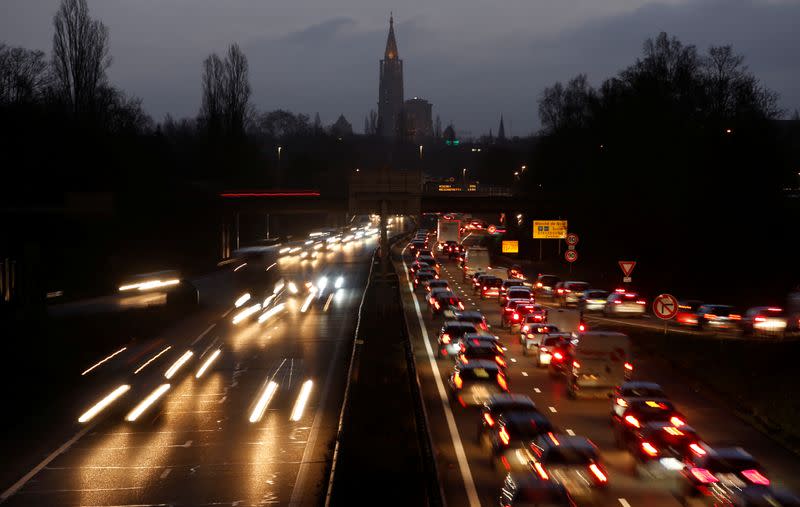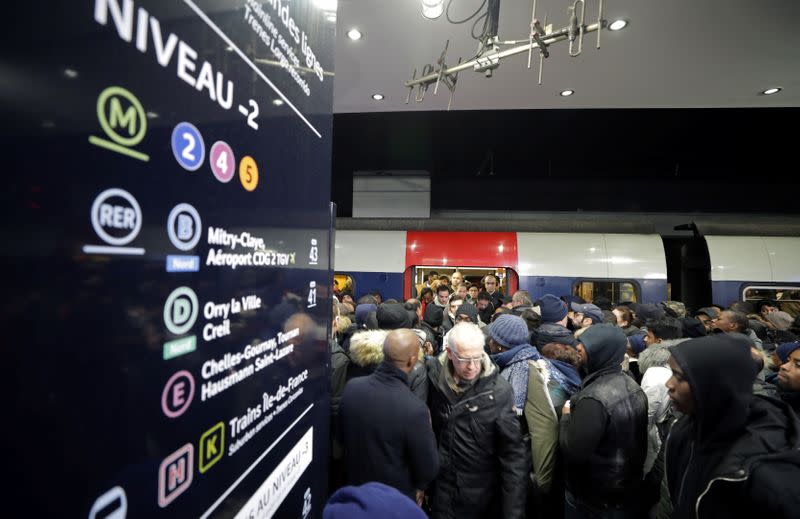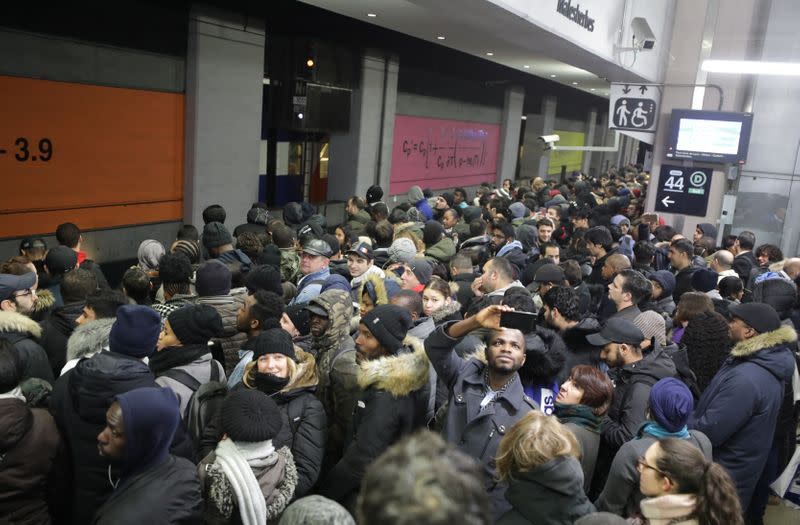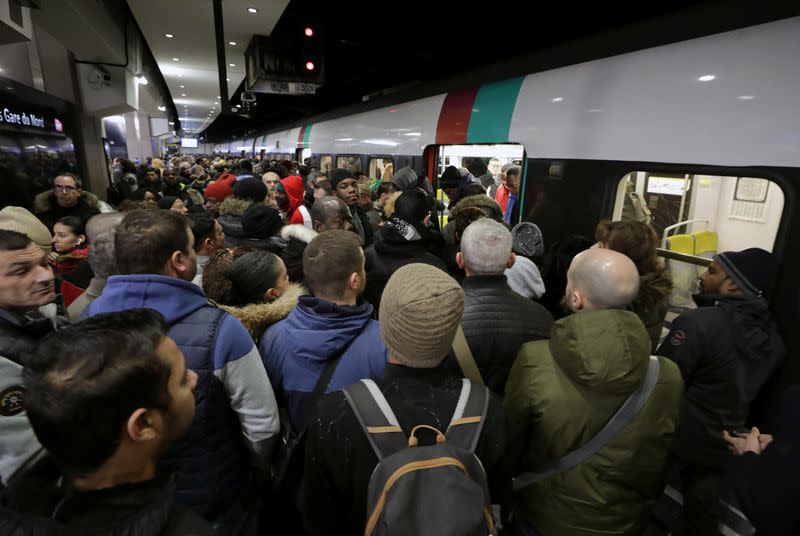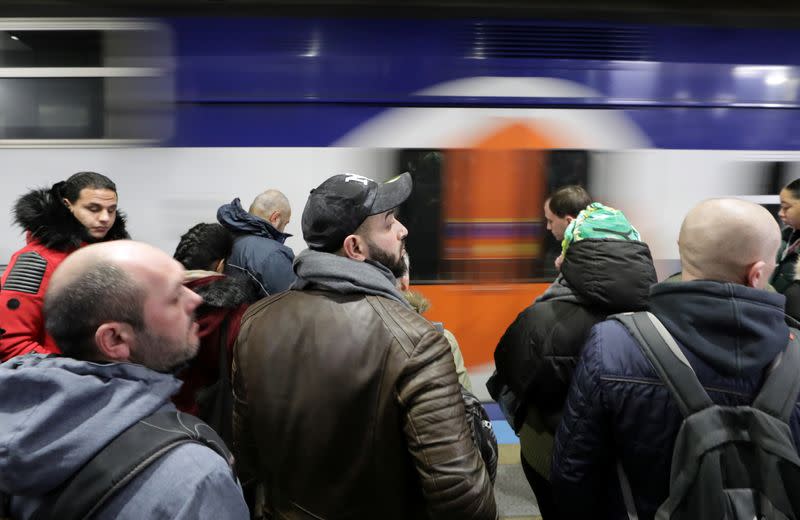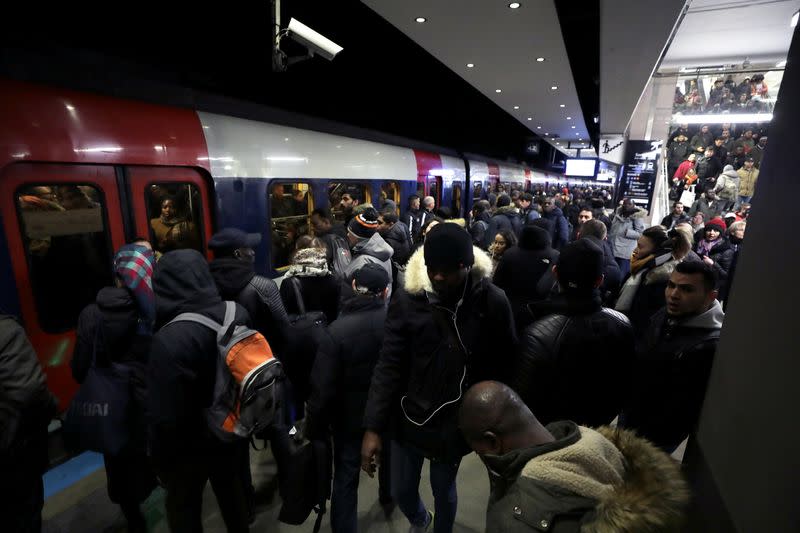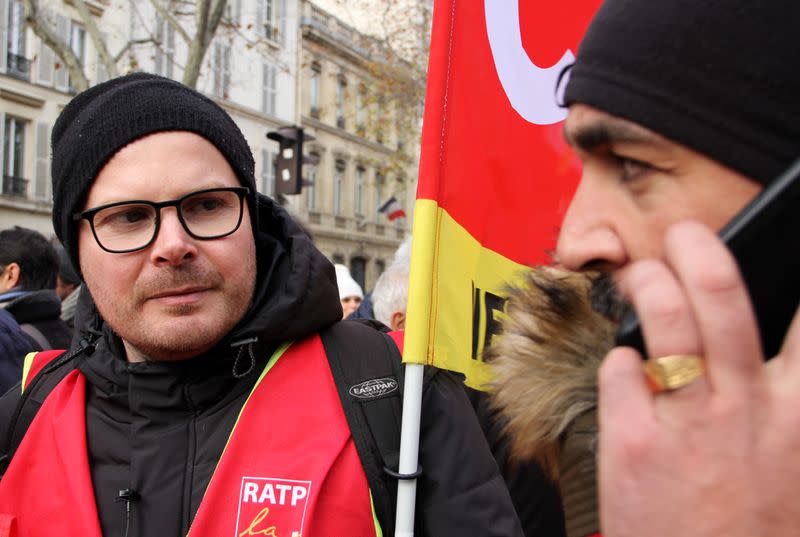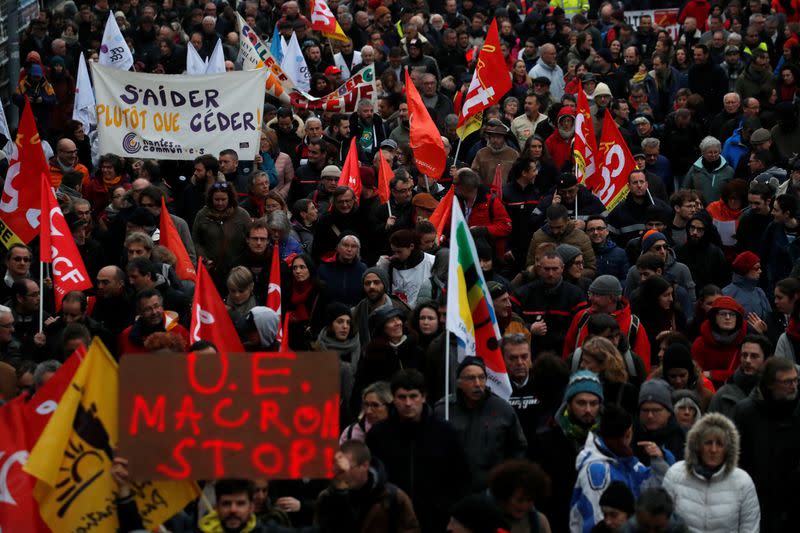French protesters take to streets over pension reform but numbers dwindle
By Sybille de La Hamaide and John Irish
PARIS (Reuters) - Strikes against pension reforms shut schools and caused transport chaos around France on Tuesday, but the number of people taking to the streets dropped by more than half from last week, strengthening President Emmanuel Macron's hand.
Public workers have been on strike for six days, with trains the hardest hit. Unions had called for mass protests on Tuesday, the day before Macron's government is to unveil details of its plan to simplify a complicated pension system that offers some of the world's most generous benefits.
Organizers had wanted to match the more than 800,000 who participated in a first day of protest last Thursday, but the turnout was much lower, despite the fine weather.
"Given the depth of discontent, there is a need to get more people on the streets," Philippe Martinez, head of the hardline CGT union, told reporters before leading a march in Paris.
Behind Martinez, protesters chanted "Macron we're coming to get you" and waved banners reading "strike or die of hunger".
The Interior Ministry estimated that 339,000 people marched in France, including 31,000 in Paris. On Dec. 5, it put the figure at 806,000 nationwide, including 65,000 in Paris.
The CGT said it had tallied 885,000 people in France on Tuesday, 180,000 of them in Paris, compared with 1.5 million nationwide and 250,000 in Paris on Dec. 5.
Union leaders acknowledged the crowds were smaller, but showed no sign of backing down in a battle of political will that could make or break Macron's presidency.
The CGT called for further protests on Dec. 12 and Dec. 17.
Macron is determined to simplify a system of more than 40 separate pension plans. He says a single, points-based system would be fairer, giving every pensioner the same rights for each euro contributed.
The unions say Macron wants to strip workers of hard-earned benefits and threatens their quality of life.
"What's at stake goes much beyond simply overhauling the pension system," said Christopher Dembik, an economist with Saxo Bank in Paris. "For Emmanuel Macron, it's about ... reasserting his ability to reform the country."
NO MAGICAL ANNOUNCEMENT
The strikes follow months of negotiations. On Wednesday, Prime Minister Edouard Philippe will outline the reform's key elements. He told ruling party lawmakers on Tuesday that he did not expect a sudden end to the unions' revolt.
At a weekly parliament session dominated by questions about pension reform, Philippe repeatedly said that Macron had been elected on a platform to reform the pension system.
"A universal, points-based pay-as-you-go system will be better than the multitude of systems we have now," he said.
Failure to reform would mean a deficit in the pensions system of up to 17 billion euros ($18.74 billion), 0.7% of GDP, by 2025, an independent pension committee forecast.
Macron is aware of strong public opposition to simply raising the retirement age of 62. One alternative is to curb benefits for those who stop working before 64 and give a boost to those who leave later.
Room for concessions may lie in the pace at which the changes are phased in.
The strike is among the biggest since 1995 when Prime Minister Alain Juppe was forced to abandon an overhaul of the pension system after weeks of industrial action. Juppe's cabinet never recovered from that defeat.
Among Tuesday's protesters in Paris, Yann Cardin said the lower turnout reflected a desire to prepare for a long fight.
"Each day that we strike is a day's salary lost. Today we're hunkering down for the long haul," the 34-year-old dancer said. "We need to manage our forces."
(Additional reporting by Geert De Clercq, Dominique Vidalon; Writing by Richard Lough; Editing by Peter Graff, Nick Macfie and Lisa Shumaker)
